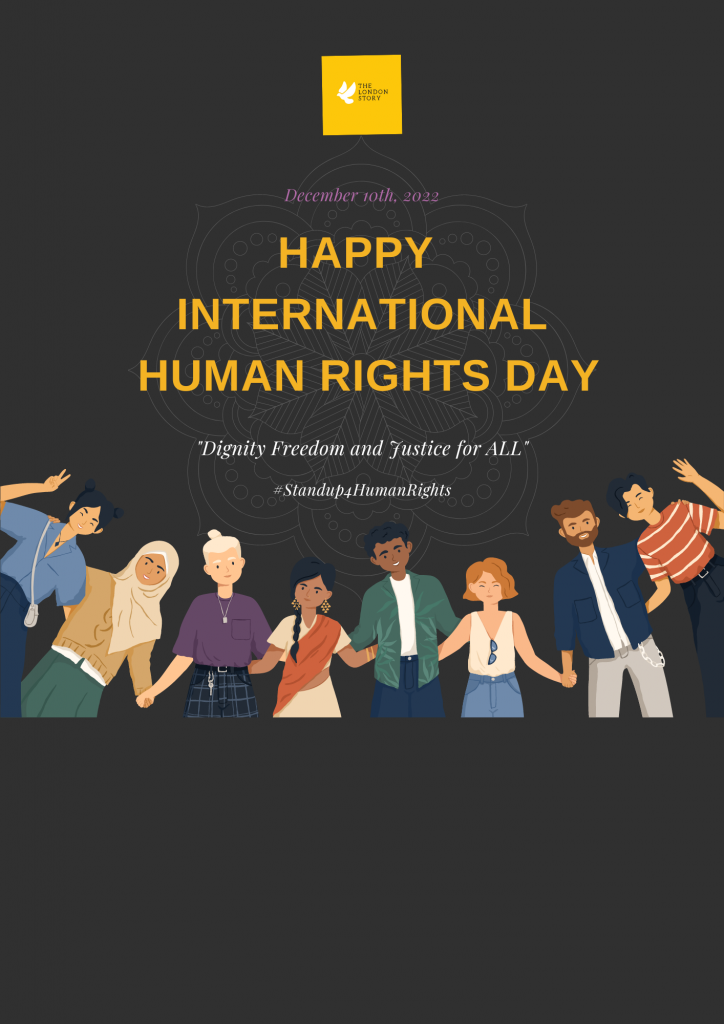Public statement for Human Rights Day 2022
Today, December 10, marks the anniversary of the Universal Declaration of Human Rights (UDHR). The UDHR – a declaration that human rights are indivisible, and apply to everyone. India played a key role in making this happen. Indian diplomats, including Vijaya Lakshmi Pandit, M.R. Masani and Lakshmi N. Menon, fought for all human rights to be treated with the same level of importance.
That is why today’s Human Rights Day comes with a loud appeal: “Dignity, Freedom, and Justice for All”.
But democracy and tolerance for human rights are in worrying decline in India.
On today’s Human Rights Day, we call on the Indian government to ensure dignity, freedom, and justice for all people in India.
We condemn that India systematically denies religious minorities and Human Rights Defenders dignity.
People belonging to religious minorities are routinely attacked by mobs, and forced to chant ‘Jai Shri Ram’, a praise to Hindu god Ram, often before being lynched. Those seeking accountability for such crimes are branded as “anti-nationals” for their human rights work. In July 2021, 84-year-old Jesuit priest Father Stan Swamy died in custody while imprisoned without trial under anti-terror laws. Despite suffering from Parkinson’s, he was denied medical care, and even a straw and blanket. G.N. Saibaba, a Delhi University professor who was convicted on false charges of terrorism and is seriously disabled, is incarcerated under undignified conditions. Denied both help in using the toilet and treatment for muscular regeneration, he is at risk of custodial death.
We demand dignity.
We condemn that India systematically denies fundamental freedoms.
The V-Dem Institute has considered India an “electoral autocracy” for several years in a row, and Freedom House downgraded India to “partly free” in 2021, calling it a “country in the spotlight” for the “deterioration of basic freedoms”. Human Rights Defenders and journalists are particularly affected. Between 2010-2020, 154 journalists were arrested, detained, interrogated, or harassed for their work. Over 40% of incidents took place in 2020 itself. The government has imposed travel bans on at least 22 journalists, several of whom have faced raids, threats, and detention. Even though a court acquitted Prof. G.N. Saibaba in October, eight years after he was arrested on fabricated charges, the Supreme Court suspended the order. Khurram Parvez, Coordinator of the Jammu Kashmir Coalition of Civil Society and Chairperson of the Asian Federation Against Involuntary Disappearances, has been in custody for over a year, and his detention has been extended five times. Umar Khalid, a student activist detained under fabricated charges of conspiracy, has been denied bail repeatedly during his two-year pre-trial custody, despite a lack of evidence.
We demand freedom.
We condemn that in India, justice is only granted to few.
Between January 2017-December 2022, there were over 1460 verified instances of hate crimes in India. Over 86% of victims are Muslims, but violence against Christians has also risen by 81% between 2020 and 2021. But even after 53 people were killed during targeted riots in North East Delhi in 2020, the police chose not to investigate the evidence of incitement to violence by BJP politicians. Rather, dozens of student activists, academics, and lawyers were arrested for “masterminding” a conspiracy to defame India. At least twelve, all Muslim, remain in jail without trial. Justice for the lives lost, meanwhile, remains distant.
For victims of hate crimes, Hindu nationalism intersecting with existing caste and religious hatred makes justice impossible to achieve. When after the gang rape and murder of a Dalit girl in 2020 one journalist travelled to report on the crime, he was arrested. This journalist, Siddique Kappan, remains in pre-trial custody under anti-terror laws, and has been repeatedly denied bail. Even where perpetrators are apprehended, justice does not become reality. 11 Hindu nationalists who were convicted for the gang rape of Bilkis Bano and the murder of seven of her family members during religious riots in 2002, recently received early release.
To make matters worse, the Supreme Court has left fundamental rights cases – including on the discriminatory CAA, on the unilateral abrogation of Article 370, and on the UAPA – pending for excessive amounts of time, despite increasingly urgent petitions.
We demand justice.
And we demand it for all.
India was built on tolerance, secularism, diversity and equality. The Indian government must ensure dignity, freedom, and justice for all people in India.



